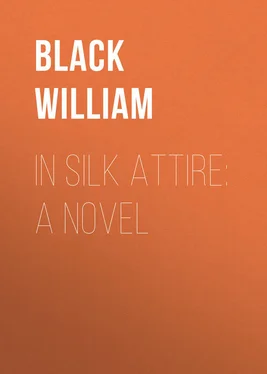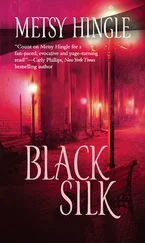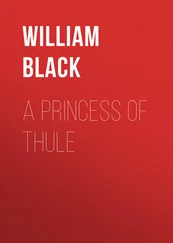William Black - In Silk Attire - A Novel
Здесь есть возможность читать онлайн «William Black - In Silk Attire - A Novel» — ознакомительный отрывок электронной книги совершенно бесплатно, а после прочтения отрывка купить полную версию. В некоторых случаях можно слушать аудио, скачать через торрент в формате fb2 и присутствует краткое содержание. Жанр: foreign_antique, foreign_prose, на английском языке. Описание произведения, (предисловие) а так же отзывы посетителей доступны на портале библиотеки ЛибКат.
- Название:In Silk Attire: A Novel
- Автор:
- Жанр:
- Год:неизвестен
- ISBN:нет данных
- Рейтинг книги:4 / 5. Голосов: 1
-
Избранное:Добавить в избранное
- Отзывы:
-
Ваша оценка:
- 80
- 1
- 2
- 3
- 4
- 5
In Silk Attire: A Novel: краткое содержание, описание и аннотация
Предлагаем к чтению аннотацию, описание, краткое содержание или предисловие (зависит от того, что написал сам автор книги «In Silk Attire: A Novel»). Если вы не нашли необходимую информацию о книге — напишите в комментариях, мы постараемся отыскать её.
In Silk Attire: A Novel — читать онлайн ознакомительный отрывок
Ниже представлен текст книги, разбитый по страницам. Система сохранения места последней прочитанной страницы, позволяет с удобством читать онлайн бесплатно книгу «In Silk Attire: A Novel», без необходимости каждый раз заново искать на чём Вы остановились. Поставьте закладку, и сможете в любой момент перейти на страницу, на которой закончили чтение.
Интервал:
Закладка:
So once more Dove passed through the gloomy region and worked her way upward to the light of the theatre. Her friends were astonished at her long absence; but they were too much enthralled by what was going on upon the stage to speak to her. And again Dove looked down upon that queenly little person with whom she had been talking; and could not explain to herself the strange sensation she then experienced. It seemed as if her visit to the dressing-room had been a trance; and that she had really been speaking with Juliet. In the dressing-room she had seen before her only a fine-looking, intellectual, and very courteous lady; but now upon the stage, she could not see this lady at all. She even lost the power of remembering her. Those jet-black tresses, those fine eyes, and that pale, beautiful forehead – above all, that rich, majestic voice – all these belonged to Juliet, were Juliet, and she knew that it was a Juliet in nature, if not in name, who had spoken to her, and taken her hand, and kissed her.
This is perhaps the severest test to which an artist can be put. When you know the writer of a book, you cannot help under-estimating the book. You are familiar with the author's personality, his habit of thought, perhaps with the material on which he works; you think of him more than of his book; and nothing but the soundest and most concentrated effort will overcome the influence of this unwittingly unjust scrutiny. When you know an actor or an actress, you involuntarily search for himself or herself in the assumed character; you look at the character from within, not from without; you destroy the illusion by a knowledge of its material elements. Nothing but the power of genius will force upon you under these circumstances the idealism which the artist is labouring to complete.
But Dove was an easy subject for the spiritual magnetism of art. Her keenly sympathetic nature vibrated to the least motion of the magician's hand; and when the passionate climax of Juliet's misery was reached, Dove had entirely lost self-control. For a little time she tried to retain her composure, although Mrs. Anerley saw her lips suddenly tremble when Juliet begged the Friar to show her some means of remaining faithful to her husband —
"And I will do it without fear or doubt,
To live an unstain'd wife to my sweet love."
But in the final scene she quite broke down. She rose and went to the back of the box, and stood in a corner, sobbing bitterly. Mr. Anerley drew her towards him; and tried to soothe her, in his quiet, kindly way.
"My darling, why should you vex yourself? You will see 'Juliet' alive in a few minutes."
"I know it well enough," she said, trying to assume her ordinary manner, "but it's very wrong for any one to write things like that, to make people cry."
"The naughty Shakespeare shan't do it again, that he shan't," said Will, compassionately. "And as for Miss Brunel, who is most in fault – but here she comes!"
Will picked out of the corner the large bouquet which lay there; and returned in time to let it drop – nearly the first of a fine collection of similar tributes which welcomed the triumph of the young actress – almost at her feet. Romeo picked it up, along with two others; she took this particular one and sent a single bright look so clearly up to the box, that a good many heads were turned thither. When Romeo had picked up the remaining bouquets, and when she had again and again bowed her acknowledgments of the cordial applause of the theatre, the girl with the pale face and the black hair retired, and the people calmed down.
"Now, Dove," said Will, "if you wish to be cheered up a bit before going, there is as absurd a farce as ever was written to follow. Shall we stay?"
"Just as you please, Will," said Dove, looking down.
The first of her new duties, she thought, was submission and obedience; and she hoped neither Mr. nor Mrs. Anerley noticed her little conjugal effort.
It was agreed, however, that they should go home at once; and Will went off to hunt up Count Schönstein's brougham. In a short space of time they were seated in the Langham hotel, awaiting supper.
"And not the least pleasant part of a play," said Mr. Anerley, dogmatically, as he fingered one of his wine-glasses, "is the supper after. You come out of the gas and the heat into a cool, fresh room; and – and – waiter! bring some ice, please."
"Yes, sir."
CHAPTER IX.
THE COUNT'S BROTHER
On that same evening Herr Graf von Schönstein dined with his brother, Mr. John Hubbard, at his residence, Rose Villa, Haverstock Hill. The Count, since his grand accession to fortune, was not a frequent visitor at his brother's house; but when he did go there he was treated with much deference and apparent kindness.
There were at dinner only the Count, his brother, his brother's wife, and her sister. When the two ladies rose to go into the drawing-room, Mrs. Hubbard said to the Count, who had sprung to the door:
"Pray don't leave us two poor creatures all to ourselves; you may smoke in the drawing-room whenever you please to come in."
"Jack," said the Count, returning to the table and pulling out his cigar-case, "that wife of yours is an angel."
And so she was an angel – that is, a being without predicates. She was a mild, colourless, pretty woman, never out of temper, never enthusiastic, absolutely ignorant of everything beyond drawing-room accomplishments, scarcely proud even of her smooth, light-brown hair, her blue eyes, and rounded cheeks. She knew, of course, that there were few women of her age looked so well and so young; she did not know to attribute that rotundity and youthfulness of face to her easy temperament, her good disposition, and lack of brain. Mrs. John Hubbard was conscious of thinking seriously only upon one subject; and that was whether the Count, her brother-in-law, could be induced to marry her sister, or whether he would remain unmarried, and leave his large fortune to her eldest boy Alexander, a young gentleman of eight, who now, in Highland dress, was about to sit down to the piano and delight his mother and aunt with a staccato rendering of "La ci darem la mano."
There were reasons why Mrs. Hubbard should be disquieted upon this point.
"Quite an angel," said the Count, oracularly. "But we mustn't go into the drawing-room just yet. I want to talk to you, Jack, about that young lady, you know."
"Miss Brunel?"
"Yes. Will you mind my taking a glass of that pale port of yours with my cigar? I know it's a shame, but – "
"Don't mention it, Fred; I wish you'd come oftener and try it."
John Hubbard straightened himself up in the wide easy chair, and prepared to receive his brother's disclosures or questions on a matter which was deeply interesting to them both. John was very unlike his stout, pompous brother; a thin little man, with grey hair and grey eyes; troubled by a certain twitching of the eyebrows, and affected generally by a weak and extremely nervous constitution. An avaricious man who sees his younger brother become possessed of thirty thousand a year, which he himself expected to get, generally exhibits other than fraternal feelings; but whatever John Hubbard may have felt, the fact remains, that so soon as his brother Frederick became the undoubted owner of this money, he, John, began to observe towards him a severe deference and courtesy. When the Count went to dine at Rose Villa, there were no tricks played upon him in the matter of wine. The claret-cup was not composed of "sudden death," at ten shillings a dozen, with a superabundance of water, and cucumber peel instead of borage. The dry sherry was not removed with the fish, in the hope that the dulled after-dinner palate might accept some Hambro' decoction with equanimity. One wine was pretty much the same as another wine to the Count von Schönstein; but he was pleased to know that his brother thought so much of him as to be regardless of expense.
Читать дальшеИнтервал:
Закладка:
Похожие книги на «In Silk Attire: A Novel»
Представляем Вашему вниманию похожие книги на «In Silk Attire: A Novel» списком для выбора. Мы отобрали схожую по названию и смыслу литературу в надежде предоставить читателям больше вариантов отыскать новые, интересные, ещё непрочитанные произведения.
Обсуждение, отзывы о книге «In Silk Attire: A Novel» и просто собственные мнения читателей. Оставьте ваши комментарии, напишите, что Вы думаете о произведении, его смысле или главных героях. Укажите что конкретно понравилось, а что нет, и почему Вы так считаете.












